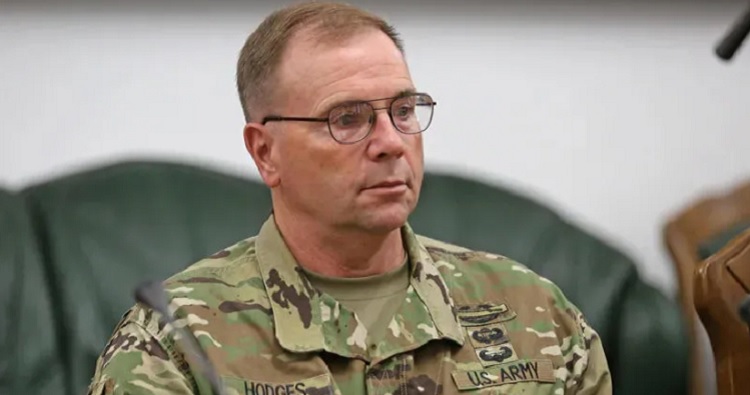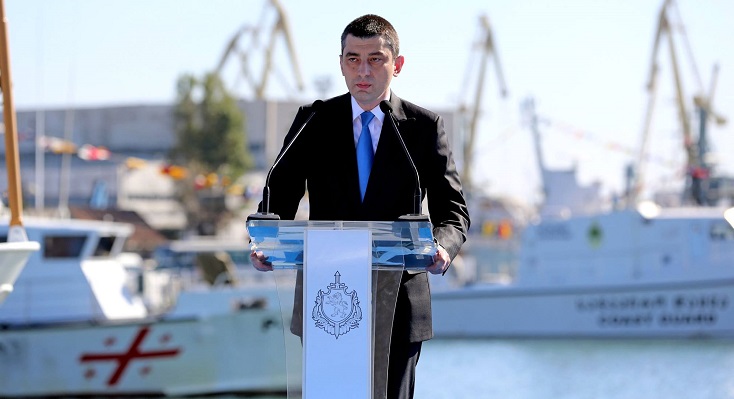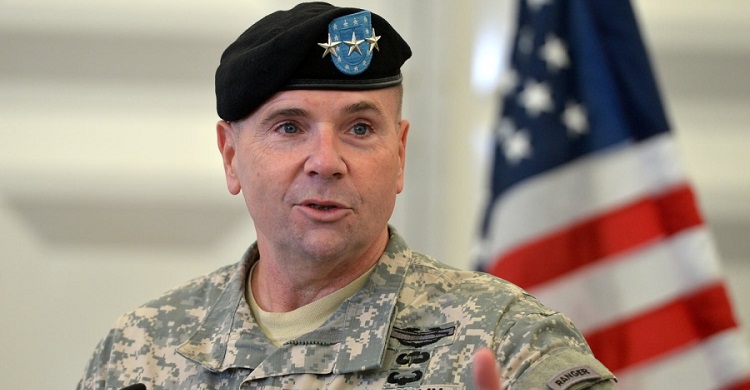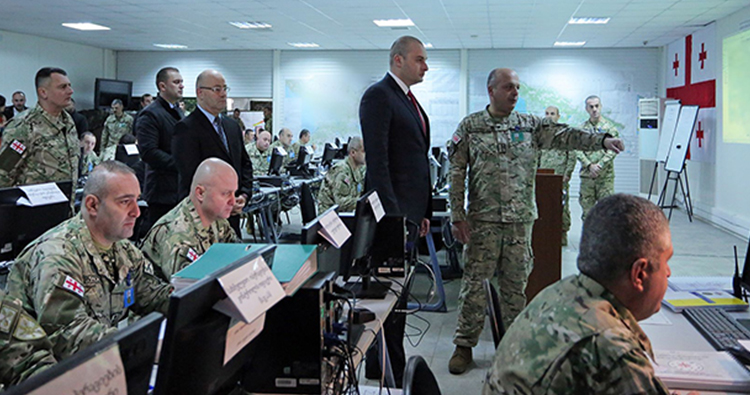American LTG Hodges on Karabakh conflict and Russian ‘piece keepers’: I’d like to see more US infrastructure in Georgia

Having Russian ground troops there as occupiers is not likely to be very helpful, he noted when speaking about the influence of new circumstances on the development of the Azerbaijan-Georgian East West corridor. Photo: IPN.
Lieutenant General Ben Hodges, who served as the commanding general of the United States Army Europe said in an interview with Europe Time he would like to see the USA increase its infrastructure in Georgia, especially to support rotational forces and strategic air lift regarding the Karabakh conflict and the deployment of Russian peacekeepers in the region.
The significance of the Russian bases in Armenia, close to Georgian territory, has gone up and so Georgia and its partners, like the USA, should pay attention to this. I’d like to see the US increase its infrastructure in Georgia, especially to support rotational forces and strategic air lift, as well as maritime presence,” he noted, adding that “this is part of great power competition…demonstrating that this region is important to us and that we’ll invest in diplomacy, information, and private economic investment as well as continuing security cooperation.”
He said that he is glad the fighting and killing ended and that Azerbaijan, with Turkish support, has decided against overreaching.
But I think there are other nations who could have provided a peace-keeping force instead of the Kremlin. I would consider the Russian forces which are deploying there today to be more like occupiers rather than peace-keepers… similar to what they have in Transnistria, Abkhazia and South Ossetia. They are actually ‘piece keepers’,” he noted.
Having Russian ground troops there as occupiers is not likely to be very helpful, he noted when speaking about the influence of new circumstances on the development of the Azerbaijan-Georgian East West corridor that connects Europe and Eurasia, a corridor for gas, telecommunications and air travel that wouldn’t go through Russia or Iran.
 Tweet
Tweet  Share
Share



